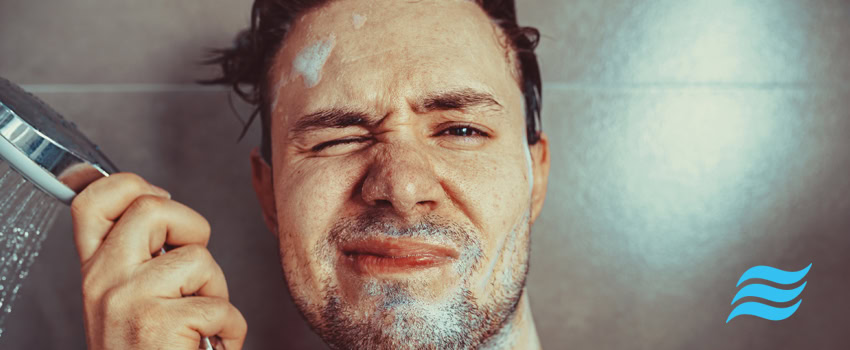
Understanding Water Pressure Problems in Northern Virginia Homes
Water pressure is something most Northern Virginia homeowners rarely think about—until there's a problem. Whether your shower head is barely dripping or your faucets sound like Niagara Falls, improper water pressure can cause serious frustration and even damage to your home’s plumbing system.
Many homeowners don’t realize that your water pressure is largely determined by the municipality that supplies your water. Street pressure—especially in neighborhoods near water towers or pumping stations—can be much higher than what your home’s plumbing is designed to handle.
That’s where a Pressure Reducing Valve (PRV) comes in. Located where your main water line enters your home, this valve plays a crucial role in keeping your plumbing safe by reducing incoming pressure to a manageable level. But PRVs can wear out over time, and when they do, pressure issues start to show up.
The Goldilocks Principle of Water Pressure: Not Too High, Not Too Low
Just like Goldilocks needed her porridge to be “just right,” your home's water pressure needs to be properly balanced. Water pressure that's too low makes simple tasks like showering and washing dishes tedious and time-consuming. Pressure that's too high, while it might seem helpful for rinsing dishes faster, can actually damage your pipes and appliances, leading to costly repairs.
The ideal water pressure for most Northern Virginia homes falls between 40 and 80 pounds per square inch (psi). The sweet spot is typically around 50-60 psi—strong enough to efficiently run multiple fixtures simultaneously but not so powerful that it strains your plumbing system.
How to Measure Your Home's Water Pressure
Not sure where your home stands? Measuring your water pressure is surprisingly simple:
- Purchase a water pressure gauge (available at most hardware stores for under $15)
- Attach the gauge to an outdoor faucet or utility sink spout
- Make sure no water is running anywhere in your home
- Turn on the faucet fully and read the gauge
This simple test can give you valuable information about your home's plumbing health. If your reading falls outside the 40-80 psi range, it's time to take action.
Warning Signs Your Water Pressure Is Too High
High water pressure might seem desirable—after all, who doesn't love a powerful shower? But excessive pressure can wreak havoc on your plumbing system. Here are signs to watch for:
- Banging pipes when you turn faucets on or off (water hammer)
- Leaking faucets or pipe joints
- Toilets that run or refill randomly
- Washing machine or dishwasher hoses that frequently leak or burst
- Appliances that wear out prematurely
- Water heater leaking or making unusual noises
- Unusually high water bills with no explanation
If your pressure gauge reads above 80 psi or you notice these symptoms, your home could be at risk for significant plumbing damage.
Signs Your Water Pressure Is Too Low
On the other hand, insufficient water pressure brings its own set of frustrations:
- Weak showers with inconsistent water flow
- Difficulty filling bathtubs in a reasonable time
- Appliances like washing machines taking unusually long to complete cycles
- Sprinkler systems that don't provide adequate coverage
- Water barely reaches second-floor fixtures
- Noticeable decrease in pressure when multiple fixtures are used simultaneously
These symptoms can make daily tasks frustrating and may indicate underlying issues that need professional attention.
Northern Virginia's Municipal Water Systems & Your Home's Pressure
Here in Northern Virginia, water pressure can vary significantly depending on your location relative to municipal pumping stations and water towers. Homes at higher elevations typically experience lower pressure, while those at the bottom of hills may have excessive pressure.
Many neighborhoods in Fairfax, Prince William, and Loudoun counties experience fluctuating pressure due to infrastructure that's being constantly updated to accommodate our region's growth. Street water pressure in Northern Virginia can sometimes exceed safe levels for home plumbing, which is why many homes have pressure-reducing valves installed.
If you've recently noticed a change in your water pressure, it could be related to municipal water system modifications. A quick call to your water utility can confirm whether they've made recent changes that might be affecting your home.
Pressure Regulators: Your Home's Pressure Control System
A pressure-reducing valve (PRV) is your home's first line of defense against excessive water pressure. Located where the main water line enters your home, this device is designed to protect your pipes from street pressure that can exceed safe levels.
Like any mechanical device, PRVs can wear out over time and may need professional inspection or replacement. If your home is older than 10-15 years and you've never had your PRV checked, it might be time for an inspection. A failing PRV can lead to gradually increasing pressure that damages fixtures and pipes throughout your home.
Modern PRVs allow for precise adjustment to find that “just right” pressure for your home's needs. If you're building a new home or replacing an older valve, consider a model with a pressure gauge for easy monitoring.
The Relationship Between Water Pressure & Plumbing Leaks
One of the most expensive consequences of improper water pressure is plumbing leaks. High pressure forces water against pipe joints, valve seats, and appliance connections with excessive force, accelerating wear and eventually causing failures.
Even small increases in pressure can have dramatic effects. For example, increasing pressure from 50 psi to 70 psi increases the stress on your plumbing system by 40%. At 90 psi, that stress doubles compared to the recommended 50 psi.
Over time, this additional stress causes small leaks that may go unnoticed behind walls or under floors until significant damage occurs. By maintaining proper pressure, you're not just improving your showering experience—you're protecting your home from potentially costly water damage.
How Water Pressure Issues Affect Your Appliances & Fixtures
Your home's appliances are designed to operate within specific pressure ranges:
- Water heaters can develop leaks when pressure exceeds manufacturer specifications
- Dishwashers may experience valve failures or develop leaks with excessive pressure
- Washing machines might have shorter lifespans or experience hose failures
- Toilet fill valves and flappers wear out faster under high pressure
- Faucet washers and cartridges fail prematurely when subjected to excessive pressure
Even a small investment in pressure regulation can extend the life of these expensive appliances and fixtures, saving you considerable money over time.
Professional Solutions for Water Pressure Problems
While some pressure issues have simple DIY fixes, others require professional expertise. Here's what a qualified plumber like Nichols & Phipps can do to address common pressure problems:
For high pressure from your local water utility:
- Install or replace a pressure-reducing valve
- Adjust your existing PRV to optimal pressure levels
- Check for and replace damaged components caused by excessive pressure
For low pressure from your local water utility:
- Install or replace a pressure boosting system – These compact systems consist of a pump, pressure tank, and controller that work together to increase your incoming water pressure to optimal levels.
- Clean or replace clogged aerators on faucets
- Address mineral buildup in pipes (especially common in older Northern Virginia homes)
- Identify and repair hidden leaks that reduce pressure
- Replace outdated, corroded galvanized pipes that restrict water flow
- Install pressure boosting systems when municipal pressure is consistently too low
Remember that pressure problems often indicate other issues within your plumbing system. A professional inspection can identify these underlying problems before they lead to major repairs.
When to Call the Pros
If you've measured your water pressure and found it outside the optimal range, or if you're experiencing any of the symptoms we've described, it's time to consult with a professional plumber. At Nichols & Phipps, we understand Northern Virginia's unique water pressure challenges and can provide accurate diagnosis and lasting solutions.
Our certified technicians will thoroughly evaluate your home's plumbing system, identify pressure issues, and recommend appropriate solutions. Whether you need a simple adjustment or a more comprehensive approach, we pride ourselves on providing honest advice without upselling or unnecessary repairs.
Don't wait until high pressure damages your plumbing or low pressure disrupts your daily routine. Call us today at (703) 670-8519 or visit us online to schedule your water pressure evaluation. Remember, when it comes to your home's plumbing system, the right pressure isn't just a comfort issue—it's an investment in protecting your home and avoiding costly repairs.
When it's broken, we fix it. When it's unfixable, we replace it. When it's working, we keep it that way… That's Nichols & Phipps.
